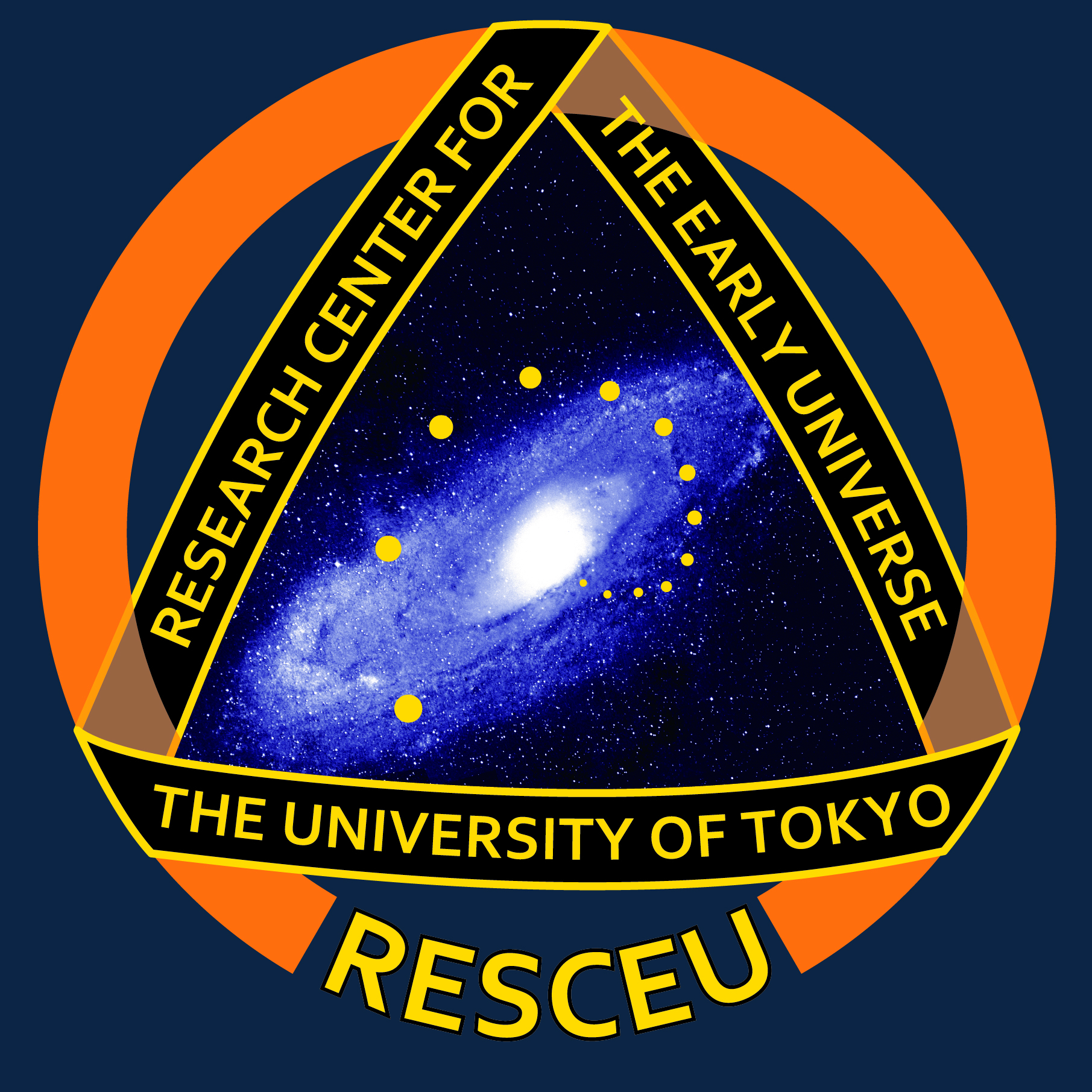What's RESCEU
Research and Organization
RESCEU, Research Center for the Early Universe, was established in April 1999 by the ordinance of the former MEXT (Ministry of Education, Science, Sports and Culture), as one of the research facilities of the Graduate School of Science at the University of Tokyo. It is a successor to a more informal research organization with the same name, which was selected in 1995 by the Center-of-Excellence (COE) program of MEXT.
RESCEU performs comprehensive and worldwide research into the early Universe, aiming to answer fundamental questions that have been asked recurrently ever since the dawn of human history: "how did our Universe begin" and "how was its present structure formed"? By combining the picture of the Big Bang universe based on general relativity with the idea of inflationary cosmology (proposed by Professor Emeritus Katsuhiko Sato, the founding director of the Center), we have come to understand the general outline of the initial state of the evolution of the universe. Starting from this state, we aim to comprehensively clarify the evolution of the universe, from the formation of matter and astronomical objects to the birth of life.
The center's core research fields are constantly reviewed as the discipline progresses, and currently promotes three projects: "Evolution of the Universe and cosmic structures," "Gravitational Wave Astrophysics and experimental gravity," and "Formation and characterization of Planetary Systems." In addition to the full-time faculty members of the Center, more than a dozen faculty members from the Departments of Physics, Astronomy, and Earth and Planetary Science, the Institute of Astronomy, and the Universal Biology Institute of the Graduate School of Science are participating in these projects as research collaborators, actively conducting research activities and tripling the size of the Center over the past 15 years.
In recent years, we embarked on research in gravitational wave science before the first detection was reported, and have achieved world-class results, including the development of the real-time analysis pipeline which led to successful discovery of the world's first binary neutron star merger event, as well as vigorous theoretical research on the sources of gravitational wave events. The center is also making significant contributions to the LIGO-Virgo-KAGRA network as the largest data analysis center in Japan.
RESCEU has a visiting professor position and has hosted a number of leading researchers from abroad. The program was suspended for a long time due to Covid-19, but we have resumed inviting researchers recently.
April 2023
Jun'ichi Yokoyama, Director
RESCEU logo
(download: jpg,1811x1811,3.3MB)





